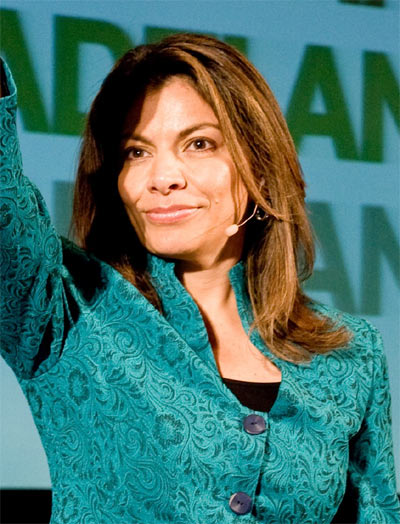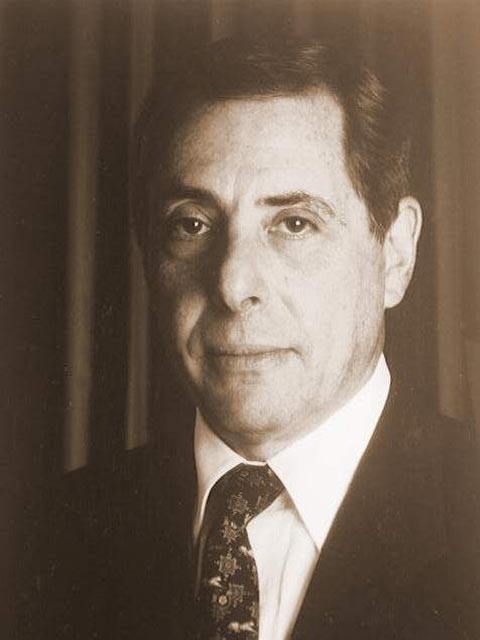|
Costa Rican General Election, 2010
General elections were held in Costa Rica on 7 February 2010. The ruling party before the election, the center-left National Liberation Party, put forward former Vice-President Laura Chinchilla as its presidential candidate, while the libertarian, Movimiento Libertario nominated former legislator Otto Guevara. Opinion polls before voting started consistently put Chinchilla as the front-runner, a trend confirmed in the election-night count, which showed her garnering 46.76% of the vote. The election was supervised by observers from several countries, as well as from the Organization of American States. The incumbent president, Óscar Arias, was ineligible to run for a second consecutive term. This was the last time as of 2019, that the National Liberation Party has gotten more than 30% of the vote, the last time to this date that they have won the Presidency, and the last time it has won any province in what is known as the Central Valley (the four provinces in the interior of ... [...More Info...] [...Related Items...] OR: [Wikipedia] [Google] [Baidu] |
Movimiento Libertario
The Libertarian Movement Party ( es, Partido Movimiento Libertario; PML) is a political party based on libertarian conservatism in Costa Rica. It was founded in May 1994. After an important protagonism during early 2000s with its perennial nominee Otto Guevara among the main candidates and reaching third place in 2006 and 2010, it was affected by several corruption scandals and lack of funds, the party gradually suffered a debacle in 2014 ending in fourth on the presidential ticket, and fifth in Parliament. Later losing all its mayors in the mid-term local election of 2016, to finally having bad results in 2018 with Guevara's candidacy reaching only 1% of support and losing all seats in Congress. History Founded by non-partisan liberals from the Academy and liberal defectors of Social Christian Unity Party, contested the 1998 election with Federico Malavassi as candidate receiving only 0.4% of the vote but succeeding in getting attorney Otto Guevara elected as member of th ... [...More Info...] [...Related Items...] OR: [Wikipedia] [Google] [Baidu] |
José María Villalta Florez-Estrada
José María Villalta Florez-Estrada (born August 13, 1977) is a Costa Rican attorney, environmentalist and politician. He was the only representative in the Costa Rican Parliament of the leftist party Frente Amplio (Broad Front) for the period that comprised 2010–2014. Villalta also was the candidate of the Frente Amplio for the presidential elections of 2014 in Costa Rica. Biography José María is the son of Laura Florez-Estrada (a Peruvian citizen) and Mario Salazar Villalta (a Costa Rica citizen). He attended primary school in Peru, where he lived some years with his maternal family. In Costa Rica he attended middle school and high school. Later he studied at the University of Costa Rica, where he held positions in student organizations such as the Association of Law Students and the High Student Council (1997-1998). He was a student representative on the University Council and a board member of the Federation of Students (FEUCR) in 1998–2000. During his years as univ ... [...More Info...] [...Related Items...] OR: [Wikipedia] [Google] [Baidu] |
Broad Front (Costa Rica)
The Broad Front (''Frente Amplio'') is a left-wing political party in Costa Rica, the main component of the front is the Alternative of the Lefts Movement (''Movimiento Alternativa de Izquierdas''). They are defined by progressive, socialist and social justice ideas. The party is a member of the Foro de Sao Paulo, part of the international Latin American Left Movement (pink tide) of democratic socialism. History In the 2006 general elections, they won 1.1% of the legislative votes, and won one seat in the legislature, occupied by José Merino del Río. In the 2010 general elections they kept their seat, occupied by José María Villalta Florez-Estrada. Their presidential nominee was Eugenio Trejos Benavides, then the rector of the Costa Rica Institute of Technology. For the 2014 election the party’s nominee was then congressman Villalta, who was receiving a lot of support according to the polls, something unusual in Costa Rica for a left-wing candidate, and even appearing ... [...More Info...] [...Related Items...] OR: [Wikipedia] [Google] [Baidu] |
Luis Fishman
Luis Fishman Zonzinski (born 30 December 1947) is a Costa Rican politician. He was the President of the Legislative Assembly of Costa Rica from 1998 to 1999. Fishman Zonzinski was elected as the Second Vice President of Costa Rica alongside Lineth Saborío Chaverri from 2002–2006, but never formally took office. In 2010, he was the Social Christian Unity Party The Social Christian Unity Party ( es, Partido Unidad Social Cristiana) is a centre-right political party in Costa Rica. PUSC considers itself a Christian-democratic party and, as such, is a member of the Christian Democrat Organization of Ameri ...'s candidate for president in the general election. Angus-Reid.com, February 3, 2010 References ...[...More Info...] [...Related Items...] OR: [Wikipedia] [Google] [Baidu] |
Libertarian Movement (Costa Rica)
The Libertarian Movement Party ( es, Partido Movimiento Libertario; PML) is a political party based on libertarian conservatism in Costa Rica. It was founded in May 1994. After an important protagonism during early 2000s with its perennial nominee Otto Guevara among the main candidates and reaching third place in 2006 and 2010, it was affected by several corruption scandals and lack of funds, the party gradually suffered a debacle in 2014 ending in fourth on the presidential ticket, and fifth in Parliament. Later losing all its mayors in the mid-term local election of 2016, to finally having bad results in 2018 with Guevara's candidacy reaching only 1% of support and losing all seats in Congress. History Founded by non-partisan liberals from the Academy and liberal defectors of Social Christian Unity Party, contested the 1998 election with Federico Malavassi as candidate receiving only 0.4% of the vote but succeeding in getting attorney Otto Guevara elected as member of ... [...More Info...] [...Related Items...] OR: [Wikipedia] [Google] [Baidu] |
Multi-party System
In political science, a multi-party system is a political system in which multiple political parties across the political spectrum run for national elections, and all have the capacity to gain control of government offices, separately or in coalition. Apart from one-party-dominant and two-party systems, multi-party systems tend to be more common in parliamentary systems than presidential systems and far more common in countries that use proportional representation compared to countries that use first-past-the-post elections. Several parties compete for power and all of them have reasonable chance of forming government. In multi-party systems that use proportional representation, each party wins a number of legislative seats proportional to the number of votes it receives. Under first-past-the-post, the electorate is divided into a number of districts, each of which selects one person to fill one seat by a plurality of the vote. First-past-the-post is not conducive to a pr ... [...More Info...] [...Related Items...] OR: [Wikipedia] [Google] [Baidu] |
Two-party System
A two-party system is a political party system in which two major political parties consistently dominate the political landscape. At any point in time, one of the two parties typically holds a majority in the legislature and is usually referred to as the ''majority'' or ''governing party'' while the other is the ''minority'' or ''opposition party''. Around the world, the term has different meanings. For example, in the United States, the Bahamas, Jamaica, United Kingdom and Zimbabwe, the sense of ''two-party system'' describes an arrangement in which all or nearly all elected officials belong to either of the two major parties, and third parties rarely win any seats in the legislature. In such arrangements, two-party systems are thought to result from several factors, like "winner takes all" or "first past the post" election systems.Regis PublishingThe US System: Winner Takes All Accessed August 12, 2013, "...Winner-take-all rules trigger a cycle that leads to and stren ... [...More Info...] [...Related Items...] OR: [Wikipedia] [Google] [Baidu] |
Abel Pacheco
Abel Pacheco de la Espriella ( ; born 22 December 1933 in San José) is a Costa Rican politician who was president of Costa Rica between 2002 and 2006, representing the Social Christian Unity Party ''(Partido Unidad Social Cristiana'' – PUSC). He ran on a platform to continue free market reforms and to institute an austerity program, and was elected, in a second electoral round, with 58% of the vote in April 2002. Biography Early life Abel Pacheco and his first wife, Elsa María Muñoz Batha, had five children: Abel, Elsa, Yolanda, Sergio and Valeria. Pacheco married his second wife, Leila Rodríguez Stahl, a former Miss Costa Rica winner, on 20 November 1975. He and Rodríguez had one son, Fabian. Career Pacheco is a medical doctor who graduated from Universidad Nacional Autónoma de México with a degree in Psychiatry from Louisiana State University. During the 1970s, 1980s, and 1990s Pacheco was a popular presenter of short programmes on Costa Rican television. Durin ... [...More Info...] [...Related Items...] OR: [Wikipedia] [Google] [Baidu] |
Social Christian Unity Party
The Social Christian Unity Party ( es, Partido Unidad Social Cristiana) is a centre-right political party in Costa Rica. PUSC considers itself a Christian-democratic party and, as such, is a member of the Christian Democrat Organization of America (ODCA). It was founded in 1983 by merger of the parties that were part of the Unity Coalition: the Christian Democratic, the Republican Calderonista, People's Union and the Democratic Renovation Party. Its historical roots are in '' Calderonism'', i.e. the movement of supporters of Rafael Ángel Calderón Guardia, who was the country's president in the 1940s. From its foundation until 2006, the PUSC was one of Costa Rica's two dominant parties, alongside the National Liberation Party. It provided three presidents: Rafael Ángel Calderón Fournier (1990–94), Miguel Ángel Rodríguez (1998–2002) and Abel Pacheco (2002–06). History Negotiations among the main right-wing opposition parties to create a political force capable o ... [...More Info...] [...Related Items...] OR: [Wikipedia] [Google] [Baidu] |
Citizens' Action Party (Costa Rica)
The Citizens' Action Party ( es, Partido Acción Ciudadana; commonly abbreviated as PAC) is a political party in Costa Rica. Its platform is based on encouraging citizen participation and involvement in politics. One of its guiding ideals is to fight against corruption, arguing that it is one of the main causes of underdevelopment and voter apathy. The party took a leading role in the failed campaign against Costa Rica's membership of the Central American Free Trade Agreement. History and elections Founding and 2002 election PAC was founded in December 2000 by several dissidents from Costa Rica's two traditional parties, the National Liberation Party and the Social Christian Unity Party. Originally an anti-corruption party, it startled the Costa Rican political arena with a very strong showing in the 2002 general elections. In the presidential vote, party founder and candidate Ottón Solís was able to secure 26% of the votes – an unprecedented amount for a third party ... [...More Info...] [...Related Items...] OR: [Wikipedia] [Google] [Baidu] |
Ottón Solís
Ottón Solís Fallas (born 31 May 1954 near Pérez Zeledón) is a Costa Rican politician. He graduated with a Bachelor of Economics from the University of Costa Rica in 1976 and gained a master's degree in economics from the University of Manchester in 1978. He is currently serving his second term as congressman, was a founding member of the Citizens' Action Party (PAC for its Spanish initials), and ran as its three-time presidential candidate. As an academic, he has taught at several universities in the United States and Costa Rica. Early political career Solís was the National Economics Minister during the Óscar Arias administration, acting in this capacity between 1986 and 1988. He also served as Arias' director of political planning. He was elected as a law-maker to the Costa Rican Legislative Assembly of Costa Rica from 1994 to 1998, serving with the National Liberation Party, the party he would abandon shortly thereafter. Founding the Citizens' Action Party In 2000 ... [...More Info...] [...Related Items...] OR: [Wikipedia] [Google] [Baidu] |



